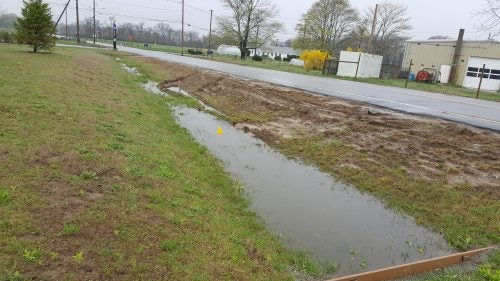 (Collaborators: R. Brown & T. Boving, URI; R. Briggs, SUNY-ESF)
(Collaborators: R. Brown & T. Boving, URI; R. Briggs, SUNY-ESF)
Municipalities and states are required to reduce pollutant levels in roadside runoff and mitigate effects on water quality through the implementation of federally approved Best Management Practices (BMPs such as grass medians, swales, and bioretention ponds. The effectiveness of stormwater control best management practices depends on regular inspections and maintenance. The main objectives of this research are to (1) evaluate the effectiveness of improved roadside grasslands as vegetated filter strips and bioretention basins for stormwater management under RI conditions, with particular emphasis on the transport and removal of total suspended sediments, nitrate and phosphate and (2) develop an understanding of the rates by which heavy metal pollutants migrate and accumulate in roadside vegetated filter strips and bioretention basins.
